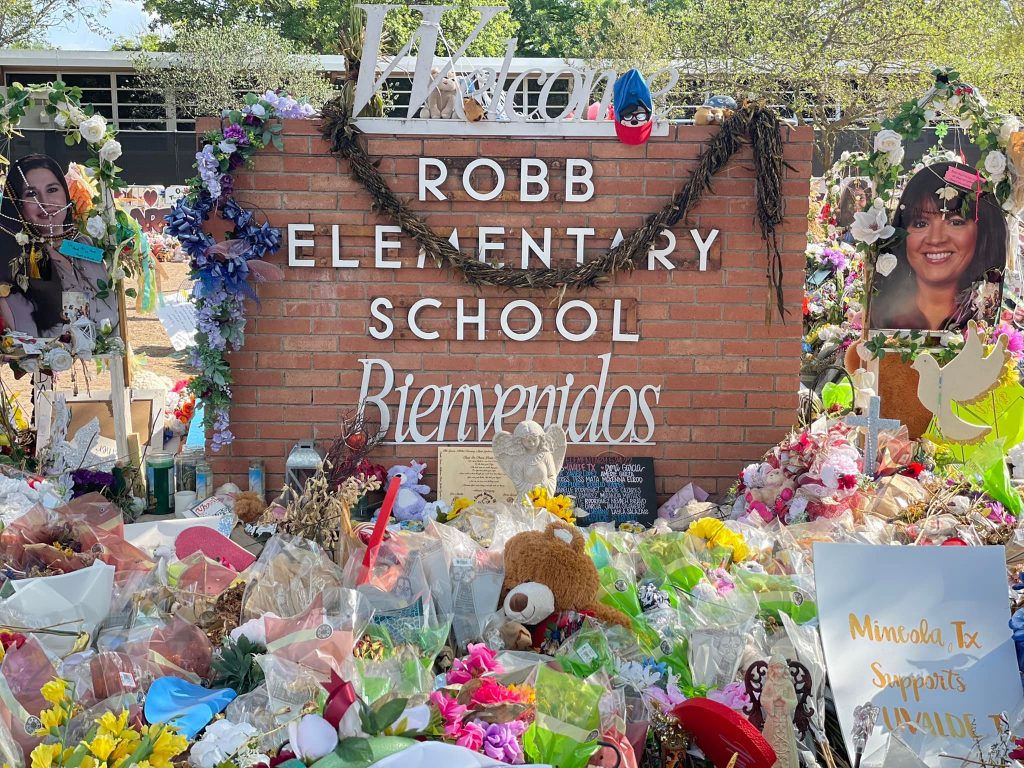
After the May 24 shooting at Robb Elementary School in Uvalde, Texas, children may be left with a wide variety of questions about the events that took place, the motives of the shooter, and their own personal safety.
With this in mind, Texas A&M Today spoke with Annmarie MacNamara, a clinical psychologist and assistant professor in the Department of Psychological & Brain Sciences, about her advice for parents facing these tough conversations.
What should parents know about how children process bad or scary news? How might they be affected differently compared to adults?
MacNamara: When children are faced with bad or scary news they go through a series of reactions, some of which overlap with adults’ experiences, and some of which may differ. These reactions can include: integration of a traumatic event into play (e.g., playing shooting games after a school shooting); attempts to predict when a traumatic event might happen again; irritability; nightmares; problems with concentration and attention or social withdrawal. Children might also show the loss of recently acquired developmental skills. They might have psychosomatic difficulties, like stomach aches, and they might be more clingy than usual. Children’s reactions to trauma need to be understood in relation to their age, and against a changing developmental backdrop.
What questions might children have about the events in Uvalde, and what should parents keep in mind as they try to answer those questions?
MacNamara: Depending on their age, children might have a number of questions as they try to make sense of the events at Uvalde and how to integrate this information into their worldview. For example, children might ask whether anyone was hurt or killed; whether a school shooting could happen at their school; or why someone would do this. Parents can provide factual answers at a level that is appropriate to the child’s age and ability to understand. Parents can also be honest that they too are upset by the events and may be struggling to understand why they happened. However, it is also important that parents check their own reactions, as high levels of emotion or fear in a caregiver may distress a child further. Importantly, parents should remind children that they are safe and that parents and teachers will work to keep them safe.
What can parents do to support their children and address their mental and emotional needs in the wake of such an event?
MacNamara: Parents can invite their children to talk about the event, such as asking them how they are feeling about the shooting or if they have any questions. Depending on the child’s developmental level and their way of responding to the event, drawing a picture or interacting through play might be an easier way for them to communicate their feelings. It is important that children feel they can talk about the shooting and their feelings, but they shouldn’t be pressured to do so. Each child will have their own individual response to the event, and their feelings should be validated. Over time, encourage children to return to normal events; for example, going to school is a part of normal life and should be continued despite difficult feelings and anxiety. If children seem especially upset or for a prolonged period of time (e.g., more than a few days), seek help from a professional.
How can parents talk to children who might be afraid or hesitant to go back to school after this, especially if they themselves are experiencing similar anxieties about their child’s safety?
MacNamara: Parents can generally take an open and honest approach with their children, but may not want to express high levels of anxiety or emotion, because this could be too much for children to deal with and could increase their distress. Sharing and validating of feelings is important, while also continuing to lead as normal a life as possible, including returning to school. Avoidance of fear-inducing activities tends to increase anxiety and fear; therefore, over the long run, continuing to engage in these activities is important.
Is there a balance to be struck between shielding children from bad news and talking to them about it? What kind of approach is best for a child’s long-term development and well-being?
MacNamara: Although it can be difficult to bear, the reality is that we cannot shield children from bad news any more than we can prevent bad or upsetting things from happening. When a child learns about something upsetting, it is important to be there for them and to support them in knowing that whatever they are feeling is valid. After validating, we want to model coping skills and functional behaviors that may need to co-exist along with ongoing fear, anxiety or sadness. The specifics of how this is done will depend on the child’s age, but might focus on recognizing, expressing and validating feelings while also choosing to continue engaging in normal, everyday life activities such as returning to school or seeing friends.
Originally published by Texas A&M Today.
